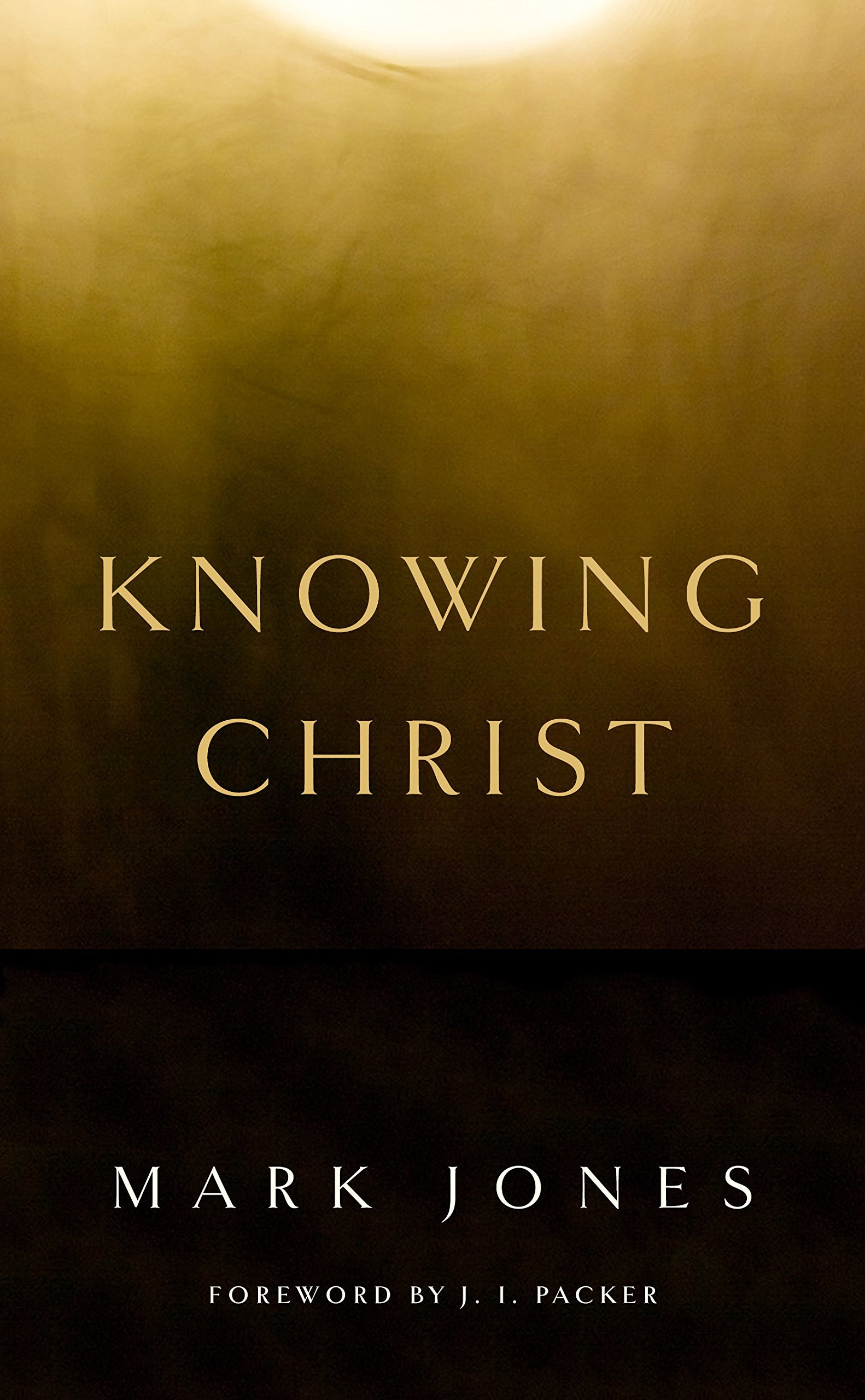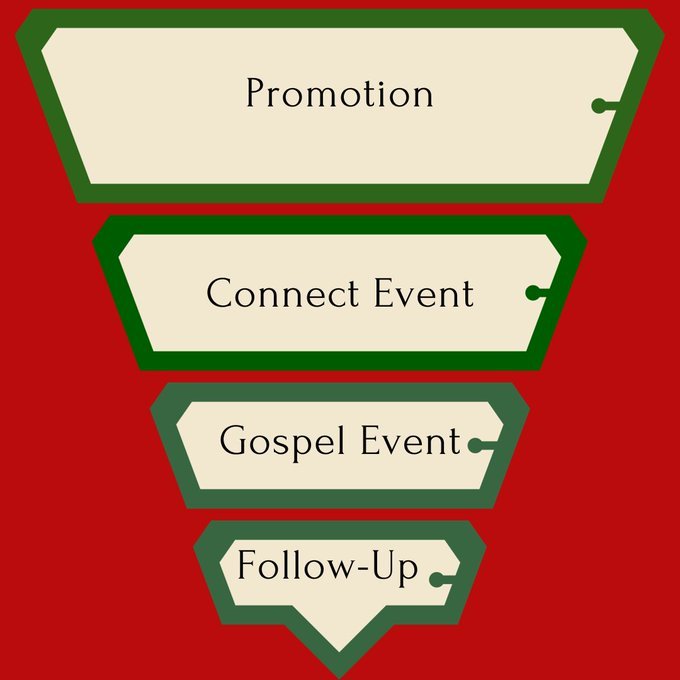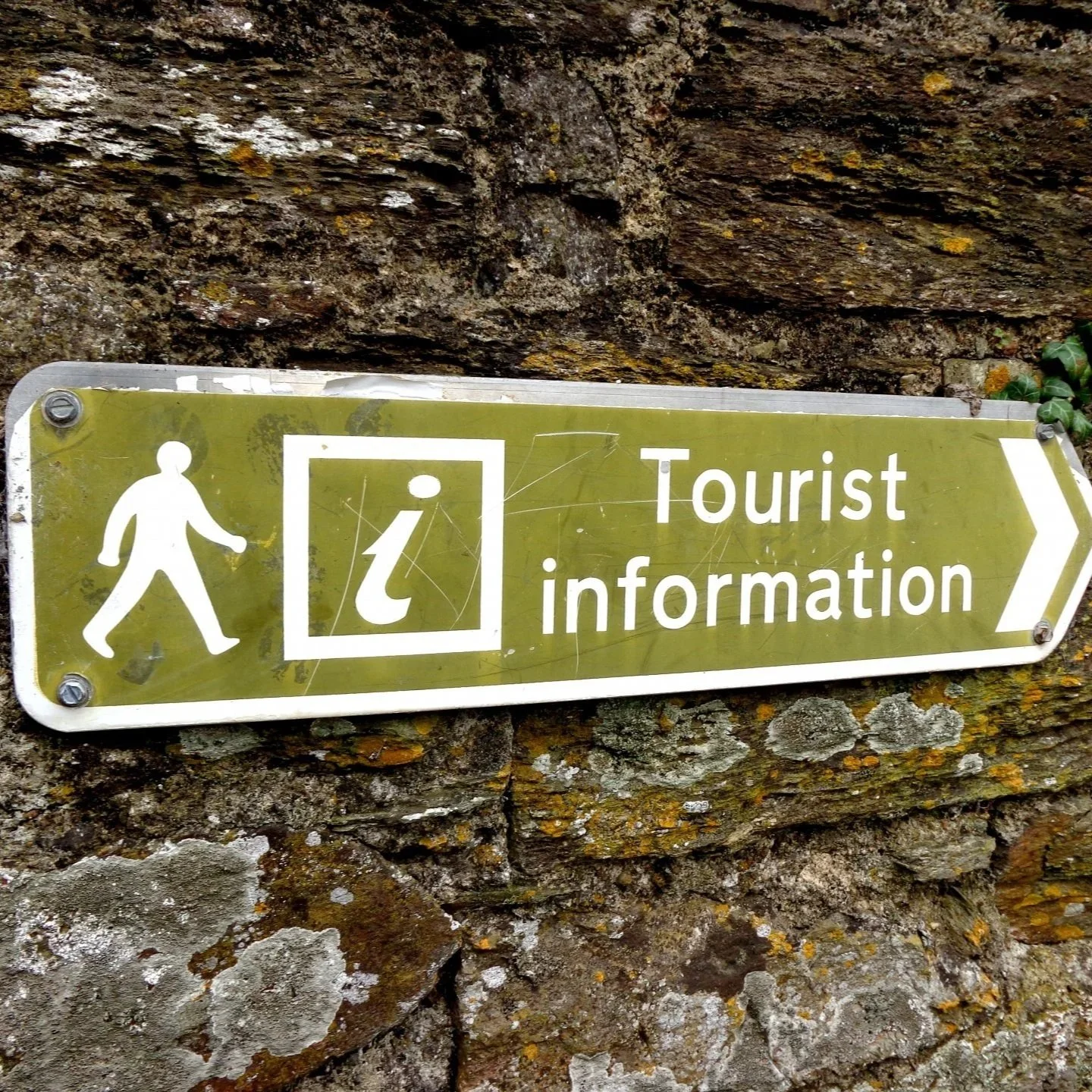How to Plan Christmas Outreach for Your Church
It's the greatest evangelistic opportunity of the year.
And often the biggest stress point of the year for church leaders!
We want to help you plan your Christmas events in a way that balances evangelistic effectiveness and realism.
To help you, here are six questions to ask about your Christmas evangelism:
Contents:
P.S. You might find it helpful to download the Christmas Planning Sheet so you can
1. Why hold your Christmas event?
In the busyness of Christmas, it’s easy to lose sight of why we’re doing it.
A clear why is like the fuel for a car. It doesn't matter if you have a Porsche or a Reliant Robin, without fuel it's going nowhere.
It's the same with Christmas at church. Knowing why your working will give you energy in the tank for ministry.
So what is that why?
The Ultimate Why
The ultimate reason we hold Christmas events is the Christmas story itself.
The world around us is lost. People are facing an eternity in hell. But God the Son became a man. He lived a life of suffering and died the most horrific death ever died.
All this so the lost in our communities can be saved.
If that’s our message, why wouldn't we want to share it?
The Why for Events
Having that reason in view we can understand the why for all Christmas events.
Why do an assembly at a school? So kids hear about Jesus.
Why are sing carols at the supermarket? So people hear about Jesus.
Why am I distributing Christmas leaflets? So people hear about Jesus
Knowing why you are doing things helps motivate you to keep going.
It also acts as a filter for events.
There are 1,000 things your church could do at Christmas. How do you choose?
You focus on ones that proclaims Jesus.
For example, a church could spend hours decorating the front of their church like Hamleys. It would no doubt be a talking point in the village. But does it help preach Jesus? Probably not.
The Why for Church Leaders
Whoever is involved in Christmas events needs that why intentionally brought before them.
A car can't just be filled up once and go forever. It needs to be refuelled regularly, especially if you’re going on a long journey.
In the same way you can't be just told once "Jesus is the reason for the seasons" and go on forever. You need to constantly be topped up with the why of Jesus.
I imagine if you're reading this you are a leader in your church. This Christmas, you'll have a high mileage. So you need a lot of spiritual fuel.
So fill up on the "Why". That is take time to enjoy Jesus this Christmas.
What gives you spiritual nourishment? Last year I read this book:
It went through the life of Jesus and really stirred my soul. I loved Jesus more which gave me fuel for the journey. The book doesn't matter. It doesn't even have to be a book:
Make time for your devotions
Sing carols
Listen to sermons
Do whatever it takes to fill up your tank with Jesus.
The Why for Church Members
Treat your church members the same way..
Don't motivate people to serve with guilt. Motivate people with Jesus.
Passionate Christ-centred preaching week after week
Times of prayer before events
Not overloading people's schedules
Reiterating the purpose behind every event
Keep this why in view.
All these things may seem like a waste of time. But to ignore them is like someone saying "I haven't got time to fill up the tank."
It'll be a lot worse in the long run.
2. Who is involved in your Christmas event?
The next question to ask involves is who is involved in your Christmas event.
This involves two questions:
Who will come?
Who will organise?
Who will come?
Has your church ever got carried away by an unrealistic idea?
You know the sort of thing. An enthusiastic church member says "My cousin's church ran a Christmas Kids Event. 40 kids came!" Your church catch the vision and run they event but it’s a failure.
Why? Well that may have worked at cousin's church, but they had 60 kids from their holiday club to invite. You don't.
To avoid failed events simply ask: who will come?
Don't answer with generic groups:
"Kids"
"Retired people!"
"People from the village"
Name real people your church will invite:
Bill Johnson (Janet's husband)
Maria (the mum of two kids at the kids group)
Alfred (the 70 year old who comes to coffee morning)
Now you're thinking of the actual people you can invite, ask: “What events would these people come to?”
You’ll get much better answers.
Who will organise it?
There's nothing worse than committing to an event and having no one help organise.
Some events are people intensive.
For example a kids event might need:
A speaker
4 craft activities
2 games to play
Cooks of food
Musicians
Ask: "Are there named people who will do each of these things?"
The temptation is to think "The pastor will do it". This might be right but ask:
Is the pastor gifted in this way? There’s nothing worse than a pastor who is terrible with kids trying to do a kids talk.
Does he have time to do this? Don’t forget all the other things he is doing as a matter of course (preaching, pastoral visits, admin). Can he really fit this in?
Can one person do everything? For our kids’ event example the answer is clearly “No”. Therefore, we must have more named volunteers.
So those are the questions to ask:
Who will come?
Who will organise it?
This leads to…
3. When will you hold your Christmas event?
6 years ago, we planned our most exciting Christmas event. We'd just planted a church, we decided we wanted to do. A Christmas fair on the field. But there was one problem, one you might make this year...
Christmas was on a Monday.
Why does that matter? Here's what most people are thinking right now: "If we go down to visit family on Friday night, we can stay Tuesday without taking any days off"
You see the problem? Half our village was going away the weekend of the event! Not only did many of our guests have that plan, so did many of our church members.
As it happened, this was good for our church. With the usual people gone, new people stepped up and served.
But in a small church this would’ve been a disaster.
Don’t neglect to consider when your events will be.
There are three key questions to ask when deciding when to hold your events:
When are our church members around? Don’t make the mistake we did! We’ve learnt from that event not to hold a big event the weekend before Christmas, as many church members will be gone.
When will guests come? Find out when competing events are on. There’s nothing worse than having the school nativity play land the same night as yours. Also consider timing. We’ve moved our Christmas carol service earlier this year because it’s on Christmas Eve and people will need time to pack their presents.
When are other church events? You don’t want church members fighting over people. Spread out your events so that church members get time to recover and people are able to go to more than one event.
4. What type of Christmas event will you hold?
With so many Christmas events, what should your church do this time of year?
Here's a tool to help you choose events. Meet the Christmas funnel:
There are four layers to the funnel. As you go further down the funnel, the number of people decreases but the gospel opportunities increase.
I'd suggest you try to do one of each over the Christmas period. Let me explain each one:
i. Promotion
Most people in your community don't know your church exists. This reverses that. Some examples include:
Flyers of events delivered round the community
Tracts or magazines such as the ? Life Magazine
Social Media (Facebook ads are incredibly effective to target a small area)
Carol singing at the local supermarket
The aim here is simple: you want people to know your church exists and our celebrating Christmas.
ii. Connect Events
Here you actually invite people to an event. A connect event is high on the relationship.
Examples would be:
Nativity play
Christmas fete
Community Christmas lunch
Messy Church (or equivalent)
Toddler group Christmas party
Church members inviting neighbours to their house
There will probably be a short message, but realistically you know the preacher will have little time.
The aim here is: to welcome people into the Christian community and alert them to key aspects of the gospel.
iii. Gospel Events
At gospel events, people understand you are going to preach a sermon. And they're up for listening.
Sometimes, you will get someone coming in off the streets straight to this kind of event. But often they will have need 1 and 2 first.
At Christmas, this will be a carol service.
iv. Follow-Up
One Christmas, we’d planned to have a Christianity Explored course in the new year. I’d promoted it at every Christmas events and so far no takers. We had a Christmas carol service and the numbers were disappointing. A little voice whispered in my ear “What’s the point of inviting people tonight?”
But I did. And two people that night signed-up. Thus followed 8 weeks of studying Mark with those two women, as well as a year reading John with one of the women afterwards.
As a result, I’ve arranged a Christianity Explored course almost every year since.
Run the risk. Invite people to a course starting in January on a specific night at a specific time. Worst case scenario, you get no one come. But with prayer, maybe God will work.
Do you need all four types of event?
Most people lean somewhere on this spectrum.
Some people find cold-contact hard. Seeing few responses can be demoralising.
Some people find connect events hard. We want to get straight to the gospel, it can seem pointless to have a 10 minute slot with lots of small talk.
Others will squirm with a clear gospel talk or certainly an evangelistic course.
The reality is, you need all kinds. Hopefully, in a church there'll be some people excited about each stage. Give a go at each of these this Christmas.
5. Where will you hold your Christmas event?
Where do you host Christmas events? Location makes a bigger impact than you'd think.
Here are 4 options to consider:
Outdoors?
Pros:
Anyone can turn up! A crowd in public draws a crowd
Carols around the tree is very festive
Cons:
Not great for messages. Hard to be heard and people will talk over you if they aren’t interested
Musicians struggle to be heard
Dark, cold and probably wet.
Hard to build relationships with those who come
Limited time until people go
Non-Church Venue?
Pros:
Easier for people uncomfortable with church to come
People will often assume it’s a “community event” not a church event
You can make the space more comfortable than outdoors
Cons:
People may be surprised when you share the gospel.
There will be longer set up time than your church
Your Home?
Pros:
Nobody invites people into their home! This is a great witness to neighbours and friends.
This is an intimate environment for relationship building. Perhaps invite Christian friends and unbelievers
Cons:
It’s hard to give a message at the event.
Limitations due to space.
A lot of work to do well
Church Building?
Pros:
It’s easier to invite people to future services
Easier to set up
People expect you to say Christian things
Cons:
Some people won’t come to a church.
You may be more limited by what your church permits on a Sunday
There’s no right or wrong, but it’s important to consider the value of each.
6. How will you run your Christmas event?
As the day arrives, you’ll want to consider how to run the event. Here’s a few hints and tips that might help you:
Don't be too creative with the message: Pastors often feel the need to preach something new every year. But you’ve got to remember for an evangelistic event, the gospel is new. Nobody wants to hear a Christmas sermon on Revelation 12 or an obscure passage in Leviticus. Just preach the Christmas message!
Upcycle sermons: Upcycling is recycling that increases value. Do this with sermons. e.g. I’m preaching at elderly lunch. I won't make a new talk, but I won't copy and paste. I'll take an existing talk and make it more relevant to my hearers.
Preach to those God is already working in: Too often we try to satisfy everyone. The reality is some will always reject the gospel. Don't dumb down the message to please everyone. Instead ask, “If someone is here who God is working in, what message should I preach?”
Pick the “Big 5” carols: Fewer and fewer people know Christmas carols. The big 5 carols are Silent Night, Hark the Herald Angels Sing, O Come All Ye Faithful, Once in Royal David’s City and O Little Town of Bethlehem. Choose those (and maybe one other) if your event is evangelistic.
Use a gospel: One of my favourite things to do in a carol service is read through a gospel Christmas account in the service (Luke or Matthew). Each attendee will be given a gospel and we will read through passages from that gospel only. This means they are familiar with a gospel and can take it home and read more.
Let Church members enjoy Christmas: Don’t flog your church to death. It's better to have joyful church members serving at two good events, than exhausted members guilt-tripped into ten. What is manageable for your church will depend on the age and size of your congregation. But be realistic.
Giveaway Kids Books: We give away a kids book every Christmas family event, and we’re often told by parents they are the kids’ favourites. My mate Ollie has written a corker this year called The Night Before Christmas which we’ll give away.
Books are great for adult follow-up too: We also buy booklets to give away. We had a good response to Is Christmas Unbelievable? by Rebecca McGaughlin. Note: if you’re struggling to afford giveaway books, 10Giving will help smaller churches pay for giveaways.
Pastors, Don't Micromanage: A lot of pastors micromanage the promotional material, the way the room looks, what snacks are served. Focus on your job: preaching Jesus. Others are more gifted in those areas. Trust them to make wise decisions.
Leave Margin for Relationships: People need to meet Jesus *and* the church. Make sure there's margin for relationships. For example, ensure you have a few chatty Christians whose job is simply to have conversations with visitors.
Push a follow-up course: Even if you think no one will come, invite people to something like a Christianity Explored course. The worst that can happen is no one coming. The best that can happen is a long-term relationship.
Pray like prayer matters: I'm not saying prayer because it is a have-to. I say because it's a must-do. Plan to pray!
Putting This Into Practice
This has not been a small article! I hope it’s given you lots to think about.
But what if you want to put it into practise?
One simple way is to download the Christmas Planning Sheet. This is a way to think through these questions for each individual event.
Click the button below to download it
And have a happy Christmas!
Enjoy this post? Share it with your twitter followers using the post below:
Tim Wilson
Tim Wilson is pastor of Wheelock Heath Baptist Church in South Cheshire, England. He is part of the Rural Project steering committee, focusing on online content. He graduated from the Union School of Theology, is married, and has three children.







